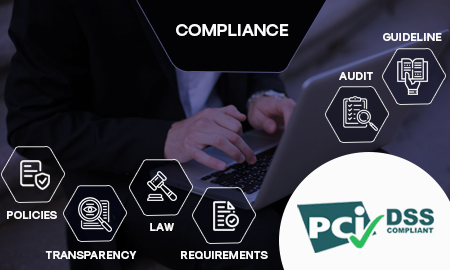The revenue cycle management process is one of the most challenging mechanisms for healthcare service providers. Medical billing and coding can be complex when you rely on your in-house team. In addition, complexities are involved when managing net collections, ensuring that coding standards are followed to handle denial management, and confirming that you can scale along with growing business volumes.
Outsourcing your revenue cycle management collection to a reputed collection agency can be hugely beneficial; however, you need to know that we can run an excellent job considering factors including medical billing and collection management. For example, to just see how well an RCM partner can meet your medical billing and coding requirements. Therefore, it’s essential to revise a few critical factors.
Things to consider when choosing an RCM partner
It’s essential that you start off vetting revenue cycle management companies by whether they offer performance guarantees or not. RCM service providers emphasize performance-based fee structures, which provide the revenue cycle management partner with an incentive to outperform and exceed established key performance indicators, i.e., collection, claim denials, and management.
It’s equally essential to investigate the KPI, helping track and ensure that organizational goals are met. Again, there are many factors to consider, including adjustment yields, turnaround times, first pass rates, patient wait times, patient AR error rates, etc.
Running denial management strategies
One of the most vital functions is to take care of denial management. It’s seen that insurance carriers reject or deny one out of every four medical claims on the first submission. This can cost healthcare providers millions in lost revenue.
Denied claims basically represent unpaid services or delayed revenue to a healthcare provider. Remember, claims denial is avoidable, and you must ensure that the healthcare revenue cycle management partner will work on the denial management process comprehensively.
By tackling claims denials with practical strategies, these partners are able to cut the cost of managing denied claims and the resulting administrative burden on the staff. They can do this by streamlining workflows for greater efficiency, enhanced cash flow, and faster appeal.
Ensuring all coders and billers with the right certifications
When planning to partner with a healthcare revenue cycle management firm, they must have the proper certification under their belt. So, the medical billers and coders must have the appropriate training and credentials. Then, they can do the work effectively.
Despite the availability of the latest software, a knowledgeable coder is needed to enter data accurately and follow up on any discrepancies with hospitals, clinicians, and insurance companies. Besides, medical coders must have the proper education and training to perform their duties quickly and accurately. In addition, your partner must be familiar with the American Association of Healthcare Administrative Management, the Healthcare Financial Management Association, and other organizations and best practices.
You must know that medical billing is pretty complex as medical coding in terms of all the legal regulations and HIPAA compliance issues that surface. That’s why you need experts with proper certification to handle all these complex requirements efficiently.
The scalability for growth
Before you partner with a revenue cycle management firm, it is essential to determine whether their resources are scalable. When their resources are scalable, they help you take on more claims submission workloads as business volumes continue to fluctuate. When in off seasons, you can reduce the number of resources. It enables you to cut operational costs by a fair amount. It’s equally critical that they have enough workforce to help you during peak seasons.
It’s never a good option to lose out on revenue you could have earned. Therefore, when hunting for a reputable RCM service provider, you need to look into partners with hundreds of staff available to scale up operations. This helps you rest assured that the medical claims get generated and submitted no matter how heavy the workload or how great the business volumes you may come across.
Service providers who scale up their operations with ease help businesses grow. You need to take on additional revenue without any issues. It’s best to choose a partner that adapts well to industry changes and your growth. The idea here is to respond to changing requirements while optimizing the number of resources you have onboard at any time.
Focusing on detailed reporting
When choosing the right revenue cycle management solutions, choosing a partner that prioritizes detailed reporting at all stages of the RCM process is vital. Remember, healthcare executives, CFOs, collections managers, administrators, and controllers use KPIs to determine your business’s financial stability for their respective departments.
Specific performance indicators and metrics such as claim denials, debt management, and collection rate are critical in healthcare providers’ financials. Accurate and comprehensive reporting helps an organization stay profitable. With that said, any RCM partner like Vital Solutions will provide full reporting service on a regular basis. As a result, the organization can track its financials and billing processes in real time.
The RCM partner adds value to the processes and operations with accurate and detailed reporting availability. Reports must include an analysis of accounts receivable and a breakdown of providers and payers with performances in each category.
Secondary factor consideration
When you outsource RCM services, you will want a clear idea of the cost of outsourcing the requirements. You must also see whether in-house billing can be economical or not. It’s essential to remember that cost savings is only one reason to partner with a revenue cycle management service provider.
You must focus on various specific services as included in the monthly percentage so that you have a good idea of what services have been covered by them. If they are willing to offer a performance-based fee structure, you can negotiate different criteria that will be assessed to determine how much they will get monthly.
When they are able to double net collections once hired, you can pay them a percentage of the total amount collected to keep them striving for more significant numbers. This way, performance is what is being monitored, measured, and optimized so that you are not just paying a simple subscription charge every month to benefit from their services.
Enhanced security mechanism
Revenue cycle management partners that are among the best in the industry will have security measures in place to keep EHRs and payment data 100% secure and confidential at all times. Unfortunately, healthcare organizations still lack the procedures or resources to check a partner’s security measures.
It’s vital to investigate the security measures that the partner has placed. You need to ensure that the patient data stays safe from any threats. Researchers have found that all the surveys conducted confirm organizations experience a data breach caused by a revenue cycle management partner.
It’s more than ever before to focus on enquiring about privacy and security measures they take to mitigate risks for your practice. RCM companies must be able to provide adequate risk assessments and focus on actions they take in order to stay compliant with HIPAA requirements.
Final Wrap
You must look into asking outsourcing partners how long they typically wait to collect. It’s more about transferring unpaid balances to a collection agency. Remember, you should also ask whether they have patient portals in their service range. It’s also how much things would cost if you did want those features available for the patients.
Partnering with Vital Solutions can help you handle all your revenue cycle management requirements. Not only do they need to run resources available with the proper certifications, but they also need to be able to provide detailed reports to boost financial performance. In addition, you must now evaluate the denial management strategies and ensure they handle patient engagement.



